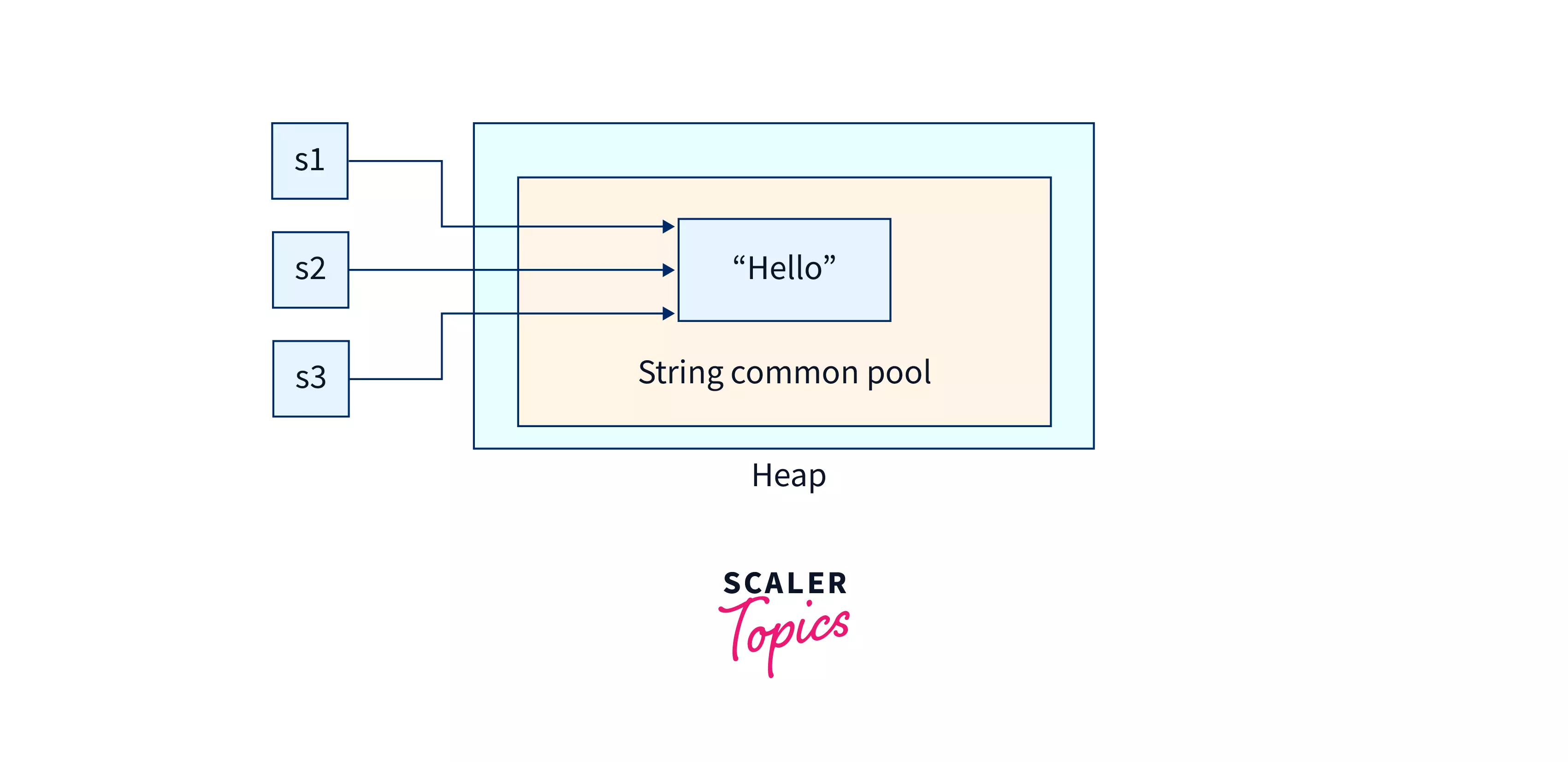Why Are Strings Immutable in Java? Detailed Analysis for Programmers
Why Are Strings Immutable in Java? Detailed Analysis for Programmers
Blog Article
Unalterable Strings: A Secret Element in Ensuring Information Consistency and Integrity
In the world of information monitoring, the value of unalterable strings can not be overemphasized. These changeless sequences of characters play an essential function in supporting the stability and accuracy of info within systems. By maintaining a state of immutability, data consistency is ensured, cultivating a foundation of reliability whereupon crucial processes count. The idea of immutable strings goes beyond plain formality; it is a linchpin in the complex internet of data administration. As we discover the advantages, execution methods, and sensible applications of unalterable strings, a more clear image arises of their important nature in protecting the digital landscape.
The Principle of Unalterable Strings
Immutable strings, a basic concept in programs, refer to strings that can not be changed when they are developed. In essence, once a string value is appointed, any operation that appears to change the string in fact creates a brand-new string. This immutability ensures data uniformity and dependability in applications, as it stops unexpected changes to the original data.
Advantages in Information Uniformity

Information consistency is crucial in different elements of software application growth, including database monitoring, multi-threaded settings, and distributed systems (Why are strings immutable in Java?). Immutable strings add dramatically to attaining this uniformity by protecting against information corruption as a result of simultaneous gain access to. In circumstances where several processes or threads engage with the exact same data simultaneously, immutable strings serve as a protect against race conditions and synchronization issues
Furthermore, the immutability of strings simplifies debugging and testing procedures. With immutable strings, developers can trust that when a string is set, it will stay unmodified, making it simpler to trace the source of mistakes and ensuring that test situations generate regular outcomes. This reliability in data taking care of inevitably results in more steady and durable applications.

Carrying Out Unalterable Strings
Guaranteeing the immutability of strings requires a thoughtful approach to their implementation in software program development. One vital method is to develop string courses in such a way that protects against alterations once a string things is created. By making strings unalterable, designers can boost data consistency and dependability in their applications.
To apply unalterable strings efficiently, programmers need to favor producing new string objects as opposed to changing existing ones. This method makes certain that once a string is assigned a worth, it can not be transformed. Furthermore, any kind of procedure that shows up to customize the string needs to create a brand-new string with the preferred modifications as opposed to altering the initial.
Additionally, utilizing unalterable strings can simplify concurrency management in multi-threaded environments. Given that unalterable strings can not be transformed after production, they can be safely shared among several threads without the risk of data corruption.
Role in Dependability Assurance
In software application advancement, the use of unalterable strings plays a crucial role in guaranteeing the dependability of data operations. Unalterable strings, when produced, can not be customized, ensuring that the information they stand for stays consistent throughout the application's execution. This immutability residential or commercial property supplies a degree of assurance that the information being processed will certainly not be accidentally transformed, resulting in unanticipated results or mistakes in the system.
By including unalterable strings right into software program design, designers can enhance the integrity of their applications by lessening the threats connected with mutable information - Why visit our website are strings immutable in Java?. Unalterable strings aid in protecting against data corruption or unexpected alterations, which can be especially important when dealing with sensitive info or when data stability is vital
Moreover, using immutable strings streamlines concurrent handling, as several threads can safely gain access to and share string information without the threat of one thread modifying the content while one more reads it. This element adds substantially to the total dependability of the software program system, ensuring constant and predictable behavior in information managing operations.
Applications and System Integration
The smooth integration of immutable strings into different applications and systems is critical for making certain durable data uniformity and reliability across diverse technical atmospheres - Why are strings immutable in Java?. Immutable strings play an important duty in boosting the stability of information exchanges and interactions within facility software program ecological communities. By integrating unalterable strings into applications, programmers can mitigate the threats related to data meddling, unauthorized modifications, and unintended alterations, thus strengthening the overall protection posture of the system
In the context of system integration, unalterable strings work as a foundational element for developing secure communication channels and helping with seamless information transfers between various components. Their unalterable nature guarantees that data sent in between systems stays the same and proven, lowering the likelihood of incongruities right here or mistakes that can jeopardize the stability of the entire system. Moreover, unalterable strings can improve interoperability between disparate systems by providing a standardized layout for information depiction, allowing a lot more reliable information handling and exchange procedures across interconnected systems. By adopting unalterable strings in applications and system integration procedures, companies can fortify their data framework and promote the integrity and uniformity of their information assets.
Conclusion
Finally, unalterable strings play a vital role in maintaining data uniformity and integrity in different applications and system integrations. By ensuring that strings can not be transformed when developed, the integrity of information is maintained, decreasing the danger of mistakes and variances. Applying immutable strings can considerably enhance the reliability of systems, ultimately bring about more precise and reputable information handling.

Report this page